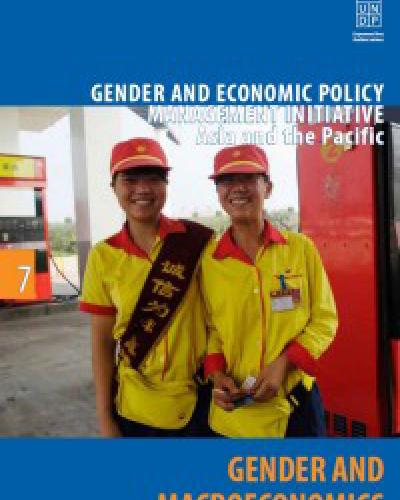Gender and macroeconomics

Macroeconomics is typically seen to be gender and ecosystem blind: It examines the economic environment in general, but it is rarely, if ever, gender neutral. A gender analysis of macroeconomics underscores both how gender relations permeate macroeconomic concepts and how macroeconomic indicators only measure a portion of total economic activity, with important consequences for unpaid work, ecosystems and the environment, household well-being, and the accurate evaluation of macroeconomic policies. A gendered consideration of macro-economics is also an ecological consideration. In Asia and the Pacific, the relationship between women and the environment in which they live is fundamental to community well-being. To help participants undertake a gender-responsive investigation of macroeconomics, the module introduces and elaborates on some key aspects of macroeconomics, including social accounting frameworks, the circular flow of income and product, domestic absorption, the multiplier, the accelerator and two-gap analysis. At the end of the module, participants should be able to evaluate a series of macroeconomic concepts by their gender content.







